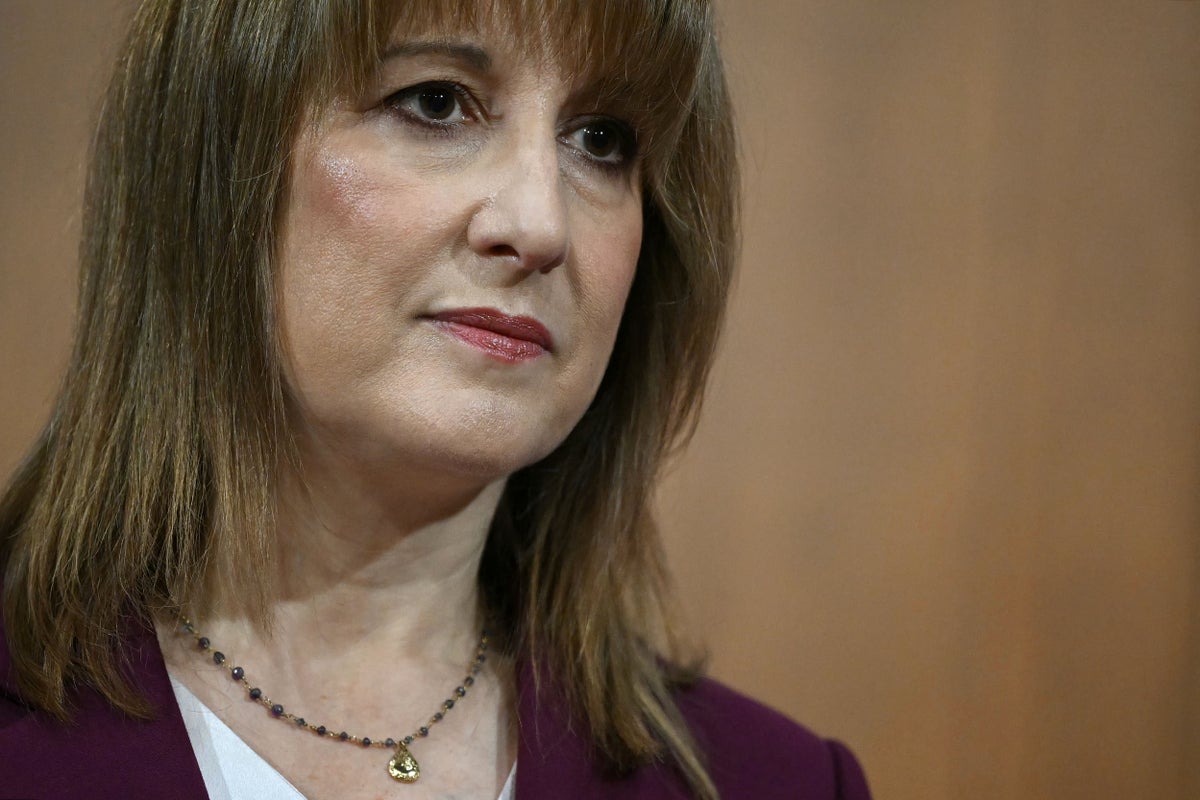
Notifications can be managed in browser preferences.
Please refresh the page or navigate to another page on the site to be automatically logged inPlease refresh your browser to be logged in
Swipe for next article
From reproductive rights to climate change to Big Tech, The Independent is on the ground when the story is developing. Whether it’s investigating the financials of Elon Musk’s pro-Trump PAC or producing our latest documentary, ‘The A Word’, which shines a light on the American women fighting for reproductive rights, we know how important it is to parse out the facts from the messaging.
At such a critical moment in US history, we need reporters on the ground. Your donation allows us to keep sending journalists to speak to both sides of the story.
The Independent is trusted by Americans across the entire political spectrum. And unlike many other quality news outlets, we choose not to lock Americans out of our reporting and analysis with paywalls. We believe quality journalism should be available to everyone, paid for by those who can afford it.
Rachel Reeves should break Labour’s manifesto commitments rather than heaping taxes on businesses to fill her Budget black hole, the Confederation of British Industry said.
The business lobbying group said hiking taxes for firms further would risk “stalling” the Chancellor’s drive for economic growth.
Ms Reeves hit firms with an increase in national insurance contributions last year but is set to deliver another tax-raising Budget on November 26.
She could choose to rip up Labour’s manifesto promise not to increase income tax to help balance the books.
CBI chief executive Rain Newton-Smith said: “Sticking rigidly to manifesto commitments may be politically laudable, but it is only economically viable if material conditions remain unchanged.
“The fact is they are not. Tax rises and spending cuts are unpopular, but the reality is that the Chancellor faces little choice.
“We need to make sure that these measures are fair, broad-based and have a laser-like focus on raising investment, growth and productivity for the long-term.”
In its submission to the Treasury before the Budget, the CBI said higher costs were already holding back business investment, with the share of tax paid by firms at 30.5% – the highest rate for 25 years and set to increase further.
Businesses are now paying £308.6 billion – more than the budgets of the NHS, schools and defence combined, the CBI said as it warned “the Government cannot pull the business tax lever once again to balance the books”.
The group said the Chancellor has to be prepared to take unpopular moves in areas like personal tax, public spending, welfare provision and pension increases.
Ms Reeves is expected to use her Budget to increase the amount of “headroom” she has against her self-imposed target of balancing day-to-day spending with receipts in 2029-30.
Doing that on top of filling a gap in her spending plans could require tax hikes amounting to around £26 billion, according to the Resolution Foundation think tank.
Labour was elected on a promise not to increase income tax, employees’ national insurance or VAT but Ms Reeves has refused to recommit to those pledges in the run-up to the Budget.
Ms Newton-Smith said: “The Government deserves huge credit for recognising the challenges faced by the economy and for showing determination to chart a course towards renewal that prioritises both public and private investment.
“But the goal of a growing economy that raises living standards across the board won’t be achieved until real fiscal headroom is created and the cycle of short-term thinking that’s holding the country back is broken.
“Yearly tinkering to close an ever-increasing fiscal gap simply isn’t a viable approach to a challenge this big.
“We need to take tough decisions now or risk a downward spiral that sees us robbing Peter to pay Paul just to fund normal government expenditure and puts our growth prospects in peril.
“Short-term thinking leads to long-term decline, let’s not make that a political choice we live to regret.”
The CBI put forward a series of suggestions to boost growth, including further planning reforms to speed up critical infrastructure projects and measures to reduce the cost of energy for firms.
The group also warned the Employment Rights Bill “could slow employment opportunities in an already cooling labour market” and scrap the planned international student levy.
Please refresh the page or navigate to another page on the site to be automatically logged inPlease refresh your browser to be logged in